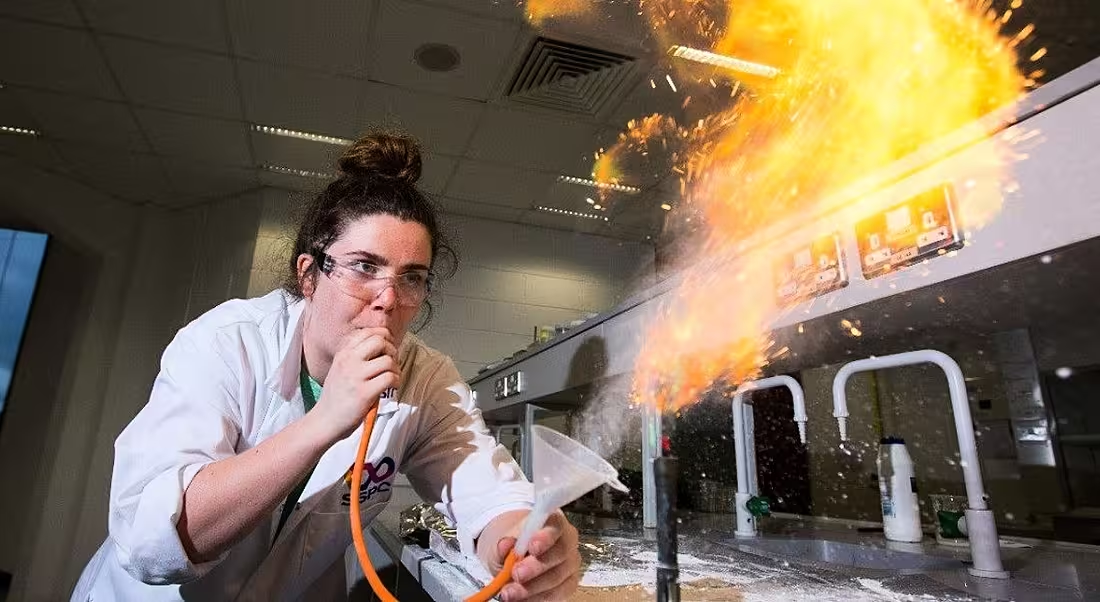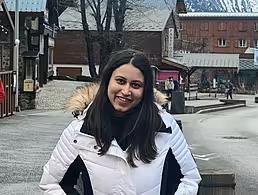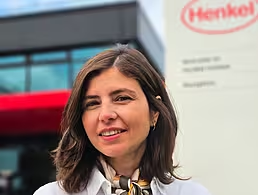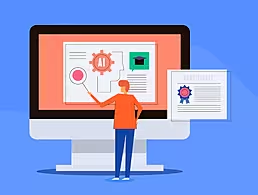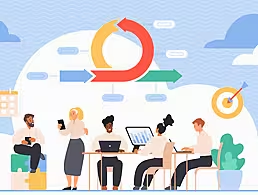Laurie Ryan, a science education PhD student working at SSPC, talks about the role scientists play in making STEM accessible to the public.
Laurie Ryan is the education and public engagement officer at SSPC, the SFI Research Centre for Pharmaceuticals at University of Limerick (UL).
Having studied to be a science teacher, she realised her passion for helping students learn about STEM and went on to do a PhD in science education, which she is currently completing.
‘My main goal is to show that anyone can take part in science in some shape or form’
– LAURIE RYAN
What experiences led you to the role you have now?
In college, I did my final-year project on an EU-funded project called Teaching Inquiry with Mysteries Incorporated. I got to create a transition-year module for teachers based on lessons that start with a mystery. I also took over as the science magic show coordinator for the chemical science department. This opened my eyes to making science both engaging and a learning experience using experiments in the classroom.
I then decided to take a year out and move to Science Foundation Ireland as a senior executive in education and public engagement. This was an amazing experience and I got to lead Science Week 2018. I cannot describe how much I learned throughout this year, from leading a team of people and developing my knowledge in numerous areas, to ensuring that a national event ran seamlessly. A lot of pressure, but I would not change any of it as I grew as a person.
Finally, I did a leadership course through the Women’s Gaelic Players Association. This was the real turning point in my life. I always had an interest in leadership and developing skills that would stand to me in futures roles. This course not only taught me content, but a key element involved me working with a life coach that helped me figure out the path I wanted to take with my career. It was excellent and I am so lucky to have had this opportunity.
Can you tell us about the research you’re currently working on?
I am currently looking at the long-term impact of having science outreach in the classroom for more than one visit. A lot of outreach tends to be a one-off visit from someone with little to no follow-up. I wanted to carry out six workshops with a class group and see if this was something that is more impactful for them. Does having access to this facility have an impact on their view of science as a subject and a scientist in general?
I am also working on developing a science-themed escape room. I have been working closely with the Limerick Escape Rooms to develop a room based on science experiments for Science Week 2020. This is a really exciting project that looks to bring science to a group of people that may not necessarily feel like they could go to a general science talk, workshop or event.
What first stirred your interest in this area?
One of my lecturers, Anne O’Dwyer, said in our third-year pedagogy lecture: “If you mix 50ml of water with 50ml of water, you get 100ml. If you mix 50ml of ethanol with 50ml of ethanol, you get 100ml. But if you mix 50ml of water with 50ml of ethanol, you get 97ml.”
This blew my mind and I knew this was the kind of teaching and activity I wanted to do with people.
If there is such a thing, can you describe a typical day for you?
My days vary so much, and I love this aspect of my job. Mondays usually have a lot of meetings, so it tends to be very much a stop-and-start day. However, every other day is fun and exciting. I like to drag myself out of bed every morning and start work early so I arrive for 8am, which allows me time to get back to any emails that may have come in and get myself set up for the rest of the day. I am not a morning person, but I love the UL campus in the morning.
I tend to have at least two school visits a week (I miss these so much in current circumstances), so I would have my car packed with equipment for the workshop – this would include pencils and rulers for all the pupils, a few science magazines for each pupil and all the equipment I need to run a workshop. We currently have five options for workshops depending on the pupils’ age and other factors, and I bring everything needed with me.
This would take most of the day travelling to the school, setting up, carrying out the workshop and then cleaning up after. I travel back to UL and spend the last hour or so answering any emails I may have missed. Then I head off home to eat before I rush out the door to go to football training or the gym.
What skills and tools do you use on a daily basis?
Communication is the main skill I use. I interact with such varied audiences on a regular basis. I work with teachers, schools, youth groups, community projects and college staff. All of these require me to be able to communicate effectively.
It’s so varied, which is an aspect I really enjoy, but before this I would actually have considered myself a shy person. The thought of standing up in front of 200 or 300 students giving a career talk would make me ill, but now I love having the opportunity to speak to these pupils and have an impact on their life.
What applications do you foresee for this research?
It is so important that we as scientists engage with the public. Ireland has a goal to be the most scientifically informed public and the onus is on us to bring that to the people. My role looks to do that in so many different ways – not everything I do involves flames, flashes and fun. A career talk that is communicated effectively can have just as much impact.
It is important that all researchers in all disciplines realise the role and impact they can have. The research and activities we carry out will look to assist in this journey long term.
Are there any common misconceptions about this area of research?
Where do I start? My main goal is to show that anyone can take part in science in some shape or form. It’s so important that members of society feel like they can engage in the big conversations that are happening.
An example I can give is my nana feeling like she can ask questions on the coronavirus. She doesn’t have a background in science, but she isn’t afraid to ask me 100 questions a day about it. It is okay not to know, but it is even more important that people feel like they can ask questions and take part in events.
When you first started work as a researcher, what were you most surprised to learn was important in the role?
Teamwork is such an important aspect of research. It is so important to have people who you can ask questions, talk through your ideas with and even just take your mind off your work at times.
What do you enjoy most about your career in research?
I really enjoy the flexibility. I have such a varied job and there are so many opportunities to get involved in projects. I also love the people I have got to cross paths with, I have met so many people from several countries. I love getting to know them and hear about their culture.
